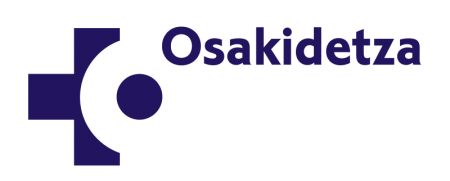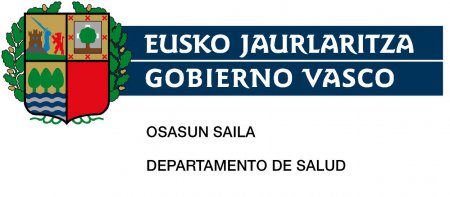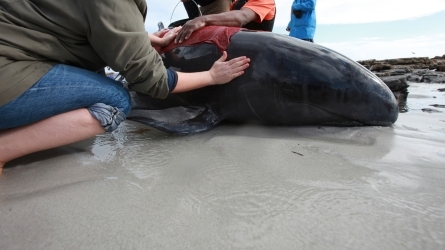
Todo lo que quisiste saber sobre el cáncer y nunca supiste a quién preguntar
Description
Curso de Verano de divulgación científica sobre el cáncer que pretende acercar las bases científicas del cáncer al público en general. Se trata de divulgar los conceptos científicos que explican la creación, perpetuación, así como la terapia contra el cáncer de forma accesible para cualquier persona sin que tenga formación científica previa. El curso se divide en dos días y comienza con una sesión introductoria que explica el origen celular de la enfermedad y la naturaleza de las células para poco a poco ir adentrándose en los aspectos más importantes del cáncer, presentados por las y los profesionales más destacados en cada uno de los ámbitos, tanto del mundo académico como de los principales centros de investigación de Euskadi (CicBiogune, BioCruces), y empresas dedicadas a terapias antitumorales (Onena Medicines, PolymerBio). Los temas que se tratan son: Origen celular del cáncer, las mutaciones, inmunidad y cáncer, problemas y terapias, microambiente tumoral, todo lo que rodea al tumor y lo pone a trabajar para su beneficio, cáncer y nutrición, células madre tumorales, la metástasis y las recidivas, las terapias que se usan en la actualidad contra el cáncer, las terapias futuras contra el cáncer…
Objectives
Acercar a la población en general los conceptos científicos que explican el origen del cáncer, su desarrollo y el tratamiento.
Fomentar el interés de la ciudadanía por la ciencia poniendo a disposición de todas las personas, de una forma amena y divertida, la ciencia que se hace en Euskadi de la mano de las y los científicos más destacados en sus áreas y que tienen una proyección internacional reconocida.
Activity directed to
- All public
Program
18-07-2022
“Registro“Presentation by the Director of the activity
- Iker Badiola Etxaburu | UPV/EHU - PROFESOR
Institutional Opening session. Speaking order:
- Katty Nevado | Contra el Cáncer Gipuzkoa - Gerente
“Cáncer. Una enfermedad asocial de las células“
- Iker Badiola Etxaburu | UPV/EHU - Profesor
“Los errores genéticos y epigenéticos.“
- Ainhoa Iglesias Ara | UPV/EHU - Profesora
Synthesis
Break
“¿Qué le pasa al sistema inmunitario?“
- Cristina Eguizabal Argaiz | BioCruces - Investigadora
“Combatiendo el cáncer“
- Isabela Díaz de Corcuera Frutos | Hospital de Galdakao, Osakidetza - Oncóloga
Synthesis
19-07-2022
“El cáncer es lo que come“
- Arkaitz Carracedo Pérez | CICBIOGINE - Investigador
“La célula tumoral y compañía: el microambiente tumoral“
- Gorka Larrinaga Enbeita | UPV/EHU - Profesor
Synthesis
Break
“Y si resulta que el cáncer tiene células madre“
- Maider Zabala Ugalde | Onena Medicines - Investigadora, fundadora
“El futuro. Hay esperanza“
- Yurena Polo Arroyabe | PolymerBio - Investigadora
Synthesis
Closing session
- Iker Badiola Etxaburu | UPV/EHU - Profesor
Directors
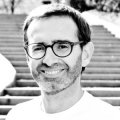
Iker Badiola Etxaburu
EHU/UPV
Iker Badiola (Ondarroa, Bizkaia, 1978) is a professor and researcher at the University of the Basque Country / Euskal Herriko Unibertsitatea (UPV/EHU), Faculty of Medicine and Nursing. During his professional career he has been dedicated to researching the cellular and molecular basis of liver metastasis. He is the author of about twenty scientific articles and a patent, has directed three doctoral theses, and has written four books on histology, aimed at health professionals. He has spent time at the University of Copenhagen and the University of Toronto. He is a founding partner of the biotechnology company INNOPROT SL. In 2006 he was awarded the prize for the best young researcher at the 13th ISCHS Congress held in Niigata (Japan). In 2019 he received the Ernesto Viéitez prize, awarded by the Royal Academy of Galician Sciences, together with a team of researchers from different disciplines, for developing an antitumor therapy.
Speakers
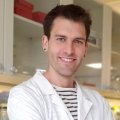
Arkaitz Carracedo Pérez
CIC bioGUNE, Jefe de grupo
Arkaitz Carracedo, Biokimikan eta Biologia Molekularrean doktorea Madrilgo Unibertsitate Konplutentsean (2006). MSKCCn (NY) eta BIDMCn (Boston, AEB) 4 urtez doktoratu ondoren, CIC bioGUNEn ezarri zuen bere ikerketa-lerroa 2010. urtearen amaieran, in vitro eta in vivo minbizi-zelulen ezaugarri biologiko bakarrak aztertzeko helburu nagusiarekin, metabolismo zelularraren asaldurak azpimarratuz. 2011tik Ikerbasque ikerketa-irakaslea da, eta 2012tik, gainera, Euskal Herriko Unibertsitateko irakasle elkartua. Minbiziaren metabolismoaren esparruan eragina izan du 108 argitalpen eta berrikuspen zientifikorekin eta nazioarteko aintzatespenerako kongresuen antolaketarekin. Bere ospea hainbat sari eta aintzatespenetan islatzen da, baita estatuko eta nazioarteko eragile garrantzitsuenek (AECC, La Caixa, ERC) bere ikerketa finantzatzea ere.

Isabela Díaz de Corcuera Frutos
Dr. Isabela Díaz de Corcuera has a degree in Medicine and Surgery from the UPV/EHU, and is a specialist in Medical Oncology. She currently works in the Oncology Service of the Galdakao Hospital. In her long professional career she has worked at Cruces Hospital, at the Clinical Observer Hospital Royal Marsden, (England) Breast/Lung Cancer Department, Medical Oncology, at the Catalan Institute of Oncology, L'Hospitalet (Barcelona). (Barcelona), in the service of Medical Oncology at the Hospital Vall d'Hebron (Barcelona). Vall d'Hebron (Barcelona), Head/Neck and Gynecologic Tumors Unit, Clinical Observer at Langone Medical Center (NYU Hospital Cancer Institute, New York), Hereditary Cancer Counseling Unit, Hospital Vall d'Hebron (Barcelona). She is the author of several scientific articles and received her PhD from the UPV/EHU with a thesis on anti-EGFR therapy in head and neck tumors.
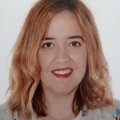
Cristina Eguizabal Argaiz
Centro Vasco de Transfusión y Tejidos Humanos-IIS Biocruces Bizkaia
La Dra. Cristina Eguizabal, es licenciada en Ciencias Biológicas y Bioquímicas por la Universidad de Navarra y doctora en Biología Celular y Embriología Experimental por la UPV. Ha realizado estancias como, en el laboratorio del Prof. Massimo de Felici en la Universidad de Tor Vergata, Roma y se incorporó al grupo de Prof. Anne McLaren-Azim Surani en el Gurdon Institute-Universidad de Cambridge (UK). Posteriormente, se incorporó en el CMRB liderado por Juan Carlos Izpisua, como investigadora senior. Posee un amplio conocimiento en células madre embrionarias y células madre pluripotentes inducidas (iPS) de diversos orígenes y diferenciación celular a diversos tipos celulares. La Dra. Eguizabal es Past-Coordinadora de “SIG- Stem Cells of ESHRE”. Profesora del Máster de Biología de la Reproducción y TRA (UAB-Dexeus). La Dra. Eguizabal desde 2013 es la responsable de la Unidad de Investigacion del CVTTH y Jefa de Grupo de Terapia Celular, Celulas Madre y Tejidos del IIS Biocruces Bizkaia.
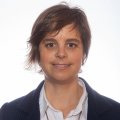
Ainhoa Iglesias Ara
I received my PhD in Biochemistry in 2006 at the UPV/ EHU. The topic of my PhD Thesis, supervised by Dr. Ana Zubiaga, focused on the function of the RB/E2F pathway in the control of tissue function. I did a postdoc (2006-2008) at the University of Southern California (USA), in the field of liver cancer, in the group led by Dr. Shelly C. Lu. In 2008 I rejoined the Consolidated Research Group of Molecular Biology of Cancer of the UPV/ EHU and since 2017 I am Full Professor. My research activity is developed in the field of cancer, making use of cellular and animal genetic models to elucidate the role of key proteins in tumor suppression. I have participated in 30 research projects, 20 international publications, more than 20 national and international congresses and I have directed 2 PhD Theses. My teaching activity is developed in two subjects in the Degree in Biology: Genetics and Genetic Engineering and Molecular Genetic Analysis.

Gorka Larrinaga Enbeita
Gorka Larrinaga is a professor and researcher at the Faculty of Medicine and Nursing of the UPV/EHU and belongs to the Cancer Biomarkers Group at the Biocruces-Bizkaia Research Institute. He has been researching in the area of oncology for 15 years. He has participated in more than 30 research projects, has published more than 50 articles in international journals of impact and also has experience as a disseminator in the area. He is currently investigating the tumor microenvironment in urinary tract tumors and colorectal cancer.

Yurena Polo Arroyabe
Yurena Polo Arroyabe (1988) 2011n Biologian lizentziatu zen Bartzelonako Unibertsitate Autonomoan (UAB). Birus bektoreak eta birosomak sortzen hasi zen lehenik Amarna Therapeutics BV eta gero Mymetics BV (biak Leiden, Herbehereak). Horren ostean, bere prestakuntzarekin jarraitzea erabaki zuen eta Biologia Molekularreko eta Biomedikuntzako Masterra egin zuen Euskal Herriko Unibertsitatearen (EHU) eta Kantabriako Unibertsitatearen (Bu) artean. Banco Santander bekari esker, Inbiomeden master amaierako proiektua egin zuen, hiPSCetatik eratorritako neuronen aldaketa transkripzionalak induzitu eta ondoren detektatzeko. 2018tik aurrera, Polimerbio SL enpresan ari da lanean, mediku biodegradagarri berriak sortzen. Aldi berean, Bikaintek bekari esker doktoretza industriala egin zuen Zibio taldean. Doktorego-tesiaren ardatza ehun neurala birsortzea da, grafenoan oinarritutako ainguraketa zelularreko matrizeak erabiliz.

Maider Zabala Ugalde
Maider Zabala, is co-founder and CSO of Onena Medicines. She completed her thesis at CIMA, where she developed new viral vectors to reduce the toxicity associated with immunotherapeutic treatments for the treatment of cancer. In 2007, Maider obtained the prestigious Fulbright international grant to continue her post-doctoral studies at Stanford University (California; USA). Maider continued her stay at Stanford as an instructor for a total of 11 years. Maider co-led several research projects investigating new mechanisms that confer immortality to breast cancer cells. Part of these studies, such as the identification of DSIP proteins and their role in breast cancer development, have been the basis for the creation of Onena Medicines. Maider has published numerous articles in scientific journals such as Cell, Science, Cell Stem Cell.
Registration fees
| Face-to-face | Until 18-07-2022 |
|---|---|
| 80,00 EUR | |
| 68,00 EUR | |
| 56,00 EUR | |
| 20,00 EUR | |
| 0 EUR |
| Live online | Until 18-07-2022 |
|---|---|
| 80,00 EUR | |
| 68,00 EUR | |
| 56,00 EUR | |
| 20,00 EUR | |
| 0 EUR |
Venue
Miramar Palace
Gipuzkoa
Miramar Palace
Gipuzkoa
Sustainable development goals
Agenda 2030 is the new international development agenda approved in September 2015 by the United Nations. This agenda aims to be an instrument to favour sustainable human development all over the planet, and its main pillars are the eradication of poverty, a reduction in equality and vulnerability and fostering sustainability. It is a unique opportunity to transform the world up to 2030 and guarantee human rights for all.

3 - Good health and well-being
Guarantee a healthy life and foster the well-being of all people of all ages. Key issues: universal healthcare coverage, sexual and reproductive health, reduction in the number of road accident casualties, pollution and chemical products, reduction in maternal and neonatal mortality, the end of epidemics such as AIDS, combating hepatitis and other water-borne diseases, drug and alcohol prevention, control of tobacco.
More information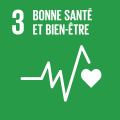
4 - Quality education
Guarantee quality education that is inclusive and equitable and foster opportunities for lifelong learning for everyone. Key issues: free-of-charge, equitable and quality education, access to higher education and training on an equal basis, education for sustainable development, suitable education centres for persons with disabilities, and safe, non-violent and efficient learning environments.
More information
